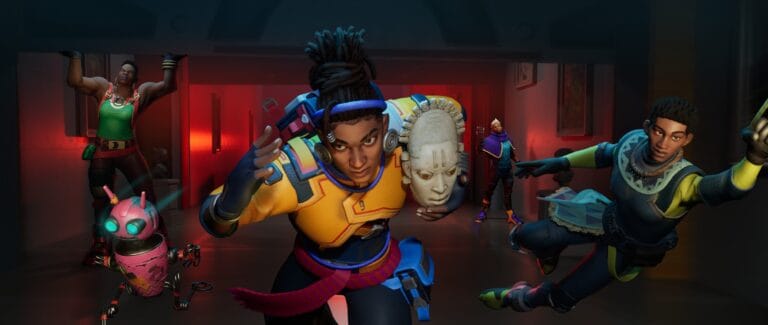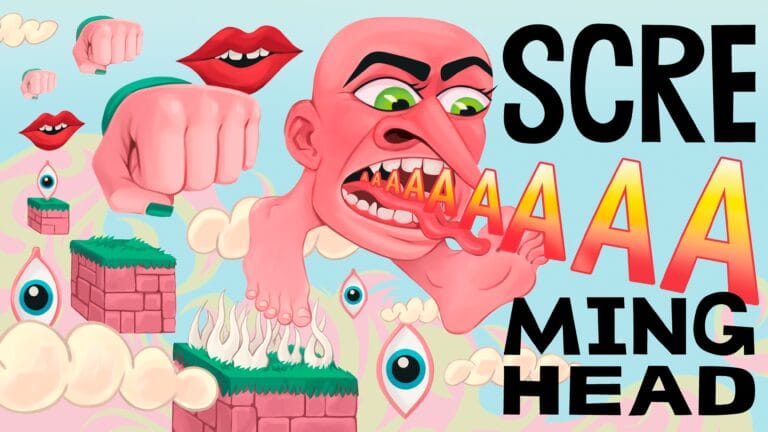
When I first glimpsed Hotel Barcelona’s promotional materials, every rational fiber of my being recoiled. Another roguelike? Really? The gaming landscape feels oversaturated with procedurally generated dungeons and punishing death loops. The aesthetic looked like someone had thrown a 1980s slasher film into a blender with a Japanese fever dream, and the collaboration between Hidetaka “Swery” Suehiro and Goichi “Suda51” Suda seemed like it might be more spectacle than substance. I approached this cursed hotel with the same skepticism I’d reserve for a carnival fortune teller entertained by the presentation but doubting the authenticity beneath.
How magnificently wrong I was.
Hotel Barcelona isn’t just a game; it’s an experience that fundamentally reshapes your understanding of what interactive horror can accomplish. This isn’t Hades with a horror skin or Dead Cells wearing a slasher mask this is something entirely unprecedented, a genuine artistic statement that happens to be packaged as a roguelike. The collaboration between Swery and Suda51 has birthed something that transcends both creators’ previous works while remaining unmistakably their DNA.
Hotel Barcelona isn’t merely a game it’s a manifesto, a passionate declaration that auteur-driven development can still produce works of genuine artistic merit in an industry increasingly dominated by committee-designed experiences. This collaboration between Hidetaka “Swery” Suehiro and Goichi “Suda51” Suda represents the synthesis of two distinctly Japanese approaches to interactive storytelling, creating something that transcends both creators’ previous limitations.
Unlike Deadly Premonition’s sometimes suffocating Twin Peaks homage, Hotel Barcelona channels Swery’s psychological horror sensibilities into something more original and personal. Meanwhile, Suda51’s notorious “style over substance” approach finally finds perfect equilibrium, with his visual and narrative flourishes serving the gameplay rather than overwhelming it.
The Narrative Labyrinth That Ensnares Your Soul
The story centers around rookie U.S. Marshal Justine, trapped within a seven-story hotel where reality bends like carnival mirrors and death stalks every corridor. What begins as a seemingly straightforward premise survive the hotel, eliminate the serial killers evolves into a philosophical meditation on identity, violence, and the nature of heroism itself.

Dr. Carnival, the enigmatic force corrupting this establishment, doesn’t simply serve as an antagonist but as a dark mirror reflecting society’s fascination with violence. Each floor of the hotel represents different horror subgenres, from 1980s slashers to modern psychological thrillers, creating a love letter to the entire horror canon. The game doesn’t just reference these influences it deconstructs them, examining why we find entertainment in terror and what that says about our collective psyche.
Revolutionary Mechanics That Redefine Failure
The Slasher Phantoms system represents genuine innovation in the roguelike space. When you die and you will die frequently your previous run doesn’t simply vanish into the digital ether. Instead, a phantom version of yourself materializes during subsequent attempts, replicating your exact movements and providing tactical support. This transforms failure from punishment into progress, creating a deeply personal army of your past mistakes and triumphs.

The Blood Splatter combat system adds layers of strategic depth that most roguelikes never achieve. Spilling enemy blood doesn’t just satisfy aesthetic brutality it powers Justine’s abilities, filling a skull gauge that unleashes devastating “Carnival Awakening” attacks. However, this power is ephemeral; taking damage, ceasing combat, or even touching water depletes your accumulated strength. The result is gameplay that demands constant aggression and movement, perfectly mirroring the relentless pace of classic slasher films.
Visual Poetry and Sonic Nightmares
Jun Kawasaki’s art direction transforms Hotel Barcelona into a living canvas. The 2.5D presentation achieves remarkable depth while maintaining visual coherence that full 3D often sacrifices. Each hotel floor possesses distinct atmospheric identity not merely different color palettes, but genuinely unique emotional textures that make navigation feel like channel-surfing through horror history.

TECHNOuchi’s sound design, refined through work on the Dark Souls series, creates an audio landscape that’s simultaneously nostalgic and deeply unsettling. The soundtrack functions as another character, shifting between carnival whimsy and genuine terror with masterful precision. The audio design particularly excels during the multiplayer modes, where multiple players’ actions create cacophonous symphonies of violence.
The user interface embraces the hotel’s carnival aesthetic without sacrificing functionality. Menus feel like vintage horror movie promotional materials, complete with grainy film effects and period-appropriate typography. Even mundane systems like inventory management become extensions of the overall artistic vision.
Technical Turbulence in Service of Artistic Vision
I must address the elephant in the blood-soaked room: Hotel Barcelona is technically imperfect. Frame rate drops occur frequently, particularly during intense combat sequences with multiple Slasher Phantoms active. The combat lacks the precise responsiveness of genre leaders like Hades, with Justine feeling deliberately heavy and unrefined.
But here’s the crucial distinction these technical limitations feel intentional rather than accidental. The jankiness serves the game’s thematic purpose, creating an unsettling atmosphere where nothing feels quite right, where perfection would actually diminish the intended experience. This is controlled chaos, not technical incompetence.
Score: 4.2/5
PROS:
- Revolutionary Slasher Phantoms mechanic transforms failure into progress
- Unparalleled artistic collaboration between gaming legends
- Deep horror genre knowledge creates authentic homage
- Blood Splatter system adds strategic depth to combat
- Multiplayer modes offer unique cooperative and competitive experiences
CONS:
- Frequent frame rate issues impact gameplay fluidity
- Combat lacks precision compared to genre leaders
- Steep learning curve with minimal early guidance
- Technical presentation needs polish
- Bosses can feel unfairly difficult with unclear attack patterns
Hotel Barcelona succeeds because it harnesses both creators’ strengths while mitigating their individual weaknesses. Swery’s psychological horror sensibilities find perfect expression without drowning in derivative references, while Suda51’s visual flair finally serves a cohesive artistic vision. The result is something neither could have achieved independently a genuinely unique horror experience that respects its influences without being enslaved by them.
The gaming industry desperately needs more works like this genuinely personal artistic statements created by developers willing to prioritize vision over mass appeal. Hotel Barcelona succeeds precisely because it refuses to compromise, because it demands engagement with its themes rather than passive consumption of its mechanics.
Don’t approach Hotel Barcelona expecting another polished roguelike experience. Approach it as you would a challenging art film or experimental novel prepared to invest time and intellectual energy in return for something genuinely unique. The hotel’s doors are open, but crossing the threshold requires abandoning conventional expectations about what games can and should be.
This is gaming at its most uncompromisingly artistic, a work that demands engagement with its ideas rather than passive consumption of its mechanics. Hotel Barcelona doesn’t ask for your approval it demands your attention, your intellectual engagement, and your willingness to confront uncomfortable questions about violence, entertainment, and the nature of heroism itself.
This is gaming at its most uncompromisingly artistic, a work that demands engagement with its ideas rather than passive consumption of its mechanics. In an industry increasingly dominated by safe, committee-designed experiences, Hotel Barcelona stands as proof that auteur-driven development can still produce works of genuine merit and lasting impact.
This review of Hotel Barcelona is based on the PC version, with a code provided by the game’s publishers.



